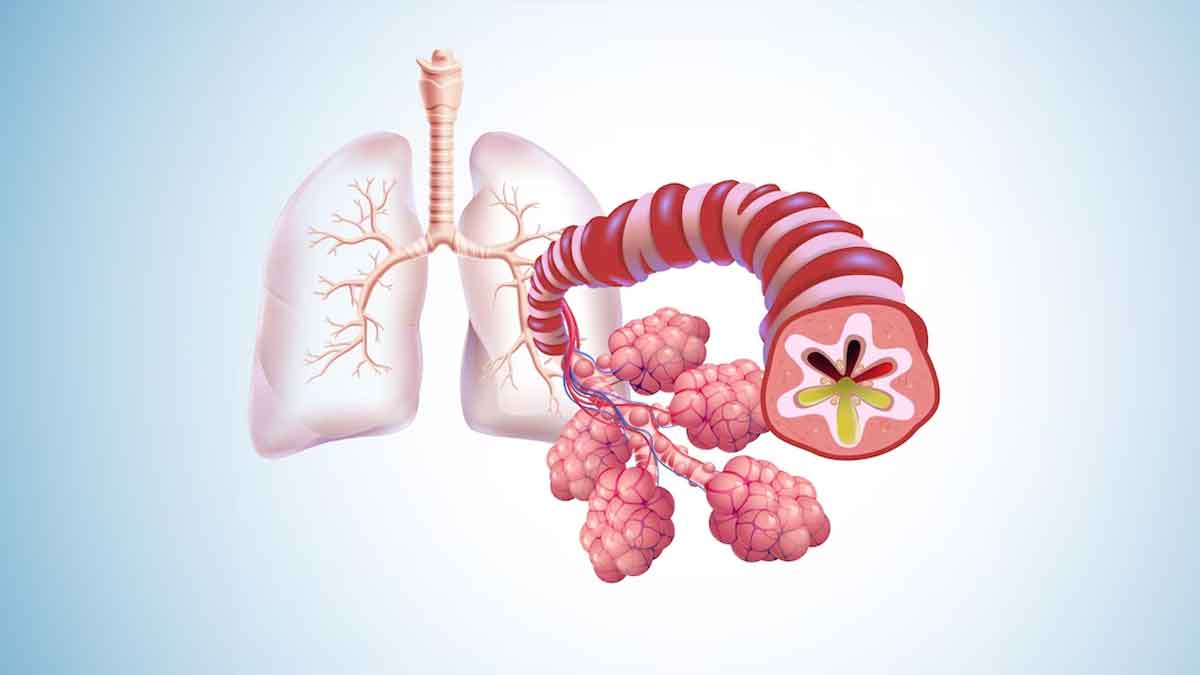
Obesity, diabetes, and heart disease are all typical health complications related with sugar use. However, the impact on lung health is less frequently acknowledged. Consuming much sugar might damage lung function and aggravate respiratory problems. Understanding how sugar impacts lung health may help people make healthier dietary choices and improve their overall respiratory health.
Table of Content:-
The Link Between Sugar and Inflammation
Chronic Inflammation
Excessive sugar consumption can lead to chronic inflammation, which is a significant factor in many diseases, including respiratory conditions. When the body processes large amounts of sugar, it triggers an inflammatory response. This chronic inflammation can affect the lungs, leading to or exacerbating conditions such as asthma, chronic obstructive pulmonary disease (COPD), and bronchitis.
.jpg)
Also read: 10 Effective Strategies To Prevent Blood Sugar Spikes After Breakfast
Oxidative Stress
High sugar intake can increase oxidative stress in the body. Oxidative stress occurs when there is an imbalance between free radicals and antioxidants, leading to cell damage. The lungs are particularly vulnerable to oxidative stress due to their exposure to high oxygen levels. This stress can damage lung tissues and impair their function.
Sugar and Asthma
Worsening Symptoms
Studies have shown that high sugar diets can worsen asthma symptoms. Asthma is characterized by inflammation and narrowing of the airways, and sugar can exacerbate these issues. Children and adults with asthma may experience increased frequency and severity of attacks if their diet is high in sugar.
Impact on Immune Response
Excessive sugar can also weaken the immune system, making the lungs more susceptible to infections and inflammation. A weakened immune system is less effective at fighting off respiratory infections, which can trigger or worsen asthma symptoms.
Obesity, Diabetes, and Lung Health
Obesity and Lung Function
High sugar intake is a major contributor to obesity, which is linked to numerous respiratory issues. Obesity can reduce lung volume, increase airway resistance, and impair gas exchange. These changes can lead to conditions like sleep apnea and decreased overall lung function.
Diabetes Complications
People with diabetes are at a higher risk of developing respiratory infections and conditions like pneumonia and tuberculosis. High blood sugar levels can damage blood vessels and nerves in the lungs, leading to compromised lung function and increased susceptibility to infections.

Respiratory Infections
Increased Risk
High sugar diets can increase the risk of respiratory infections. Sugar can suppress the immune system, reducing the body's ability to fight off viruses and bacteria. This can lead to more frequent and severe respiratory infections, which can further damage lung tissue and function.
Prolonged Recovery
Excessive sugar intake can also prolong the recovery time from respiratory infections. A weakened immune response and ongoing inflammation can make it harder for the body to heal, leading to longer and more complicated recovery periods.
Preventing Lung Damage from Excessive Sugar
Healthy Diet Choices
To protect lung health, it is important to limit sugar intake and adopt a balanced diet rich in fruits, vegetables, whole grains, and lean proteins. These foods provide essential nutrients and antioxidants that support overall health and reduce inflammation.
Regular Exercise
Physical activity can improve lung function and overall respiratory health. Exercise helps maintain a healthy weight, reduces inflammation, and enhances immune function. Regular exercise combined with a healthy diet can mitigate the negative effects of sugar on the lungs.
Hydration
Staying hydrated is crucial for maintaining healthy lung function. Water helps thin mucus secretions in the lungs, making it easier to breathe and reducing the risk of infections. Avoiding sugary drinks and opting for water or other healthy beverages can support lung health.
Monitoring Blood Sugar Levels
For individuals with diabetes or prediabetes, monitoring and managing blood sugar levels is essential for protecting lung health. Keeping blood sugar levels within a healthy range can prevent complications and reduce the risk of respiratory issues.
Excessive sugar consumption can harm lung health by causing inflammation, aggravating respiratory problems, and raising the risk of infection. Individuals can preserve their lungs and enhance their overall respiratory health by eating sensibly, exercising regularly, staying hydrated, and regulating blood sugar levels. Reduced sugar consumption is a proactive step towards improving lung function and general well-being.
Also watch this video
How we keep this article up to date:
We work with experts and keep a close eye on the latest in health and wellness. Whenever there is a new research or helpful information, we update our articles with accurate and useful advice.
Current Version
